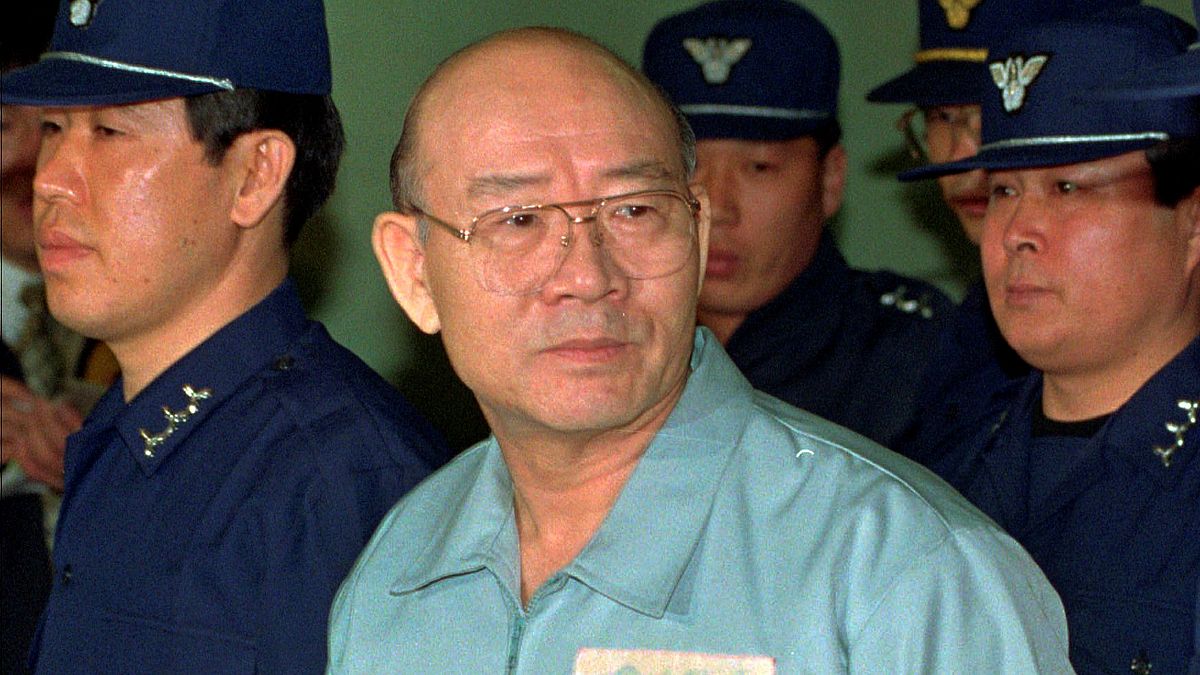Chun Doo-hwan took power in a 1979 coup and repressed pro-democracy protests before going to prison for misdeeds in office.
South Korea’s former military dictator Chun Doo-hwan, who took power in a 1979 coup, has died at the age of 90.
He ruled the country with an iron fist between 1980 and 1988, and his reign was marked by the widespread use of torture against dissidents and the repression of free speech.
He repressed pro-democracy protests during his time as an unelected military ruler and was known as the ‘Butcher of Gwangju’ for ordering the crackdown in the southwestern city in 1980.
The official death toll from the Gwangju violence is 200, but some organisations say the number could be three times that.
Born in 1931, Chun Doo-hwan entered the military academy for officer training at the height of the Korean War.
He rose through the ranks under his military patron Park Chung-hee, who took power in a coup in 1961.
When Park Chung-hee was assassinated in 1979, Chun Doo-hwan took control of the murder investigation before launching his own military coup two months later, taking control of South Korea.
During a visit to Burma in 1983, North Korean agents tried to kill him by detonating a bomb during a ceremony in memory of Aung San, the murdered Burmese independence hero and father of Aung San Suu Kyi.
His military regime oversaw South Korea's strong economic growth and got Seoul to host the 1988 Olympics.
In 1987, massive demonstrations against his regime forced him to accept the restoration of democracy.
He stepped down the following year after his long-time ally Roh Tae-woo won the election.
After opposition leader Kim Young-sam was elected president in 1993, Chun Doo-hwan was accused of treason and corruption.
He was sentenced to death, but this was later reduced by the Supreme Court, and he was pardoned in 1997.
Chun never apologised over the Gwangju crackdown.
